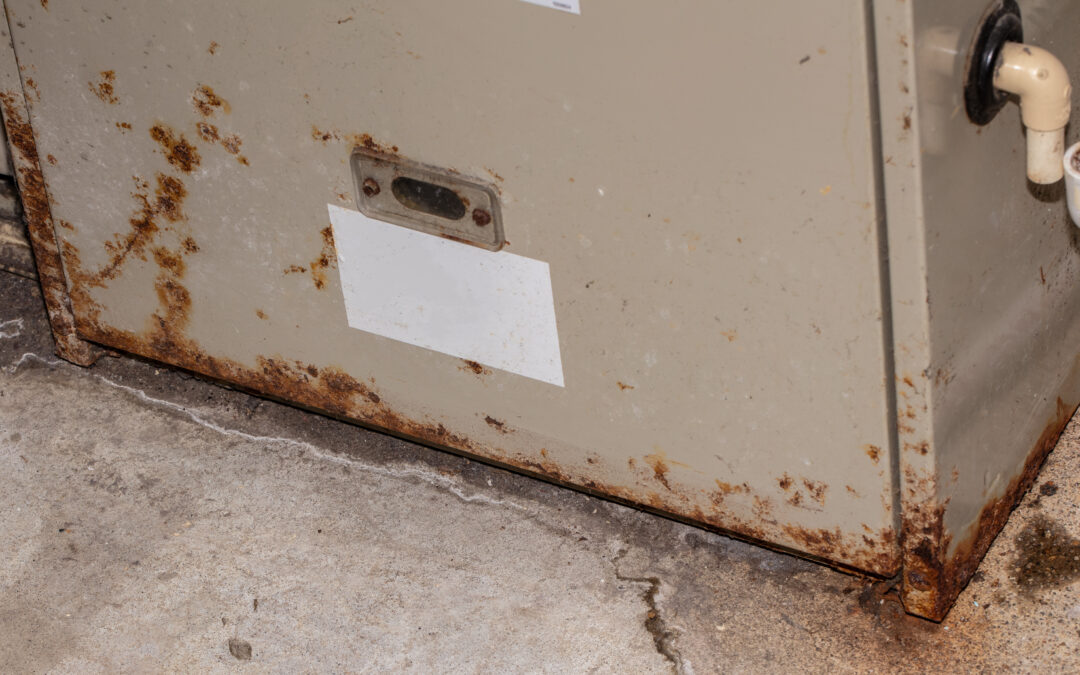As Houstonians, we know how our winters work – cold for 3 days and then hot for a week. But during those 3 days of cold, we all rely on the furnace to keep us warm. And just like having your air conditioner checked in the spring, it’s just as important to have your furnace checked in the early fall to make sure it’s working correctly.
But then the annual furnace check slips to the bottom of the to-do list – which is easy since we don’t use the furnace very often. But it’s when we forget that things start to go wrong. So how do you know if your furnace is starting to go downhill? There are many signs that are visible to HVAC technicians, but to the average homeowner recognizing the more technical signs can be difficult. But not to worry because if you follow the advice listed below you will be able to understand your furnace almost as well as a licensed JW East Mechanical technician (well, not quite!).
According to the experts, the life of a furnace depends on what make and model you purchase and what type of warranty you have. Different parts of the furnace will have a different warranty and some will last longer than others. Heat exchangers usually have a 20-year warranty, but the blower and control boards have around a 5-year warranty. All this depends on usage and maintenance. Knowing when to replace your whole furnace or just some of its parts all depends on what is breaking down and the age of your furnace.
How do I know if my furnace isn’t working correctly?
If you make a point to pay attention to the age of your furnace and the way it responds when turning on and off, you will be able to detect certain signs that are indicators of it not working correctly. Your furnace might need replacement if:
You hear funny noises: When you turn your furnace on and off you can expect to hear some noise, but if you hear excessive rattling, popping, or banging coming from your unit, you have a problem. Noises are an indicator that your furnace or certain parts of it are about to give out. As soon as you hear these strange sounds it is important to call in a professional because the longer you wait, the more damage will be done to your furnace and other parts of your HVAC system.
You smell strange odors: A slight smell is to be expected when you turn on your furnace for the first time during the winter. But if the smell doesn’t go away and seems to get stronger as the days go by, there is an issue. Burnt smells, musky smells, and other off-putting odors are your furnace warning you that parts of it are not functioning properly. The problem might be with the blower or the motor, and the only way to tell is to have a licensed HVAC technician check it out.
Your furnace is old: Maybe you have had your furnace for over 10 years and have never had a major problem with it. However, just because you have never had a problem doesn’t mean you won’t, especially as it ages. As your furnace gets older its parts are no longer able to work as efficiently as they once did. And because of its age you might wake up one morning and find that your furnace completely stopped working while you were asleep. We recommend having your furnace checked out if it is older, even if you have had no problems. It is better to be safe and warm than to take the chance and be cold.
You notice higher bills: Different parts of your furnace use up different amounts of electricity. The blower motor and fan use up a lot, especially if they are about to break down. If you notice your electric bill is exceptionally high, the problem could be that these parts are about to go out and are pulling more amps than they should.
We understand there is a significant cost associated with replacing your entire heating system, but replacing your old and inefficient unit can actually save you money in the long run. With a new furnace you can expect:
Increased Energy Efficiency: Newer furnace models are designed to be more energy-efficient, often with higher AFUE (Annual Fuel Utilization Efficiency) ratings. This means they convert a larger percentage of fuel into usable heat, which can lower your energy bills.
Reduced Repair Costs: Older furnaces often require more frequent and costly repairs. By replacing an aging unit, you can reduce the likelihood of unexpected repair expenses and enjoy peace of mind.
Rebates and Incentives: Many utility companies and government programs offer rebates or incentives for upgrading to energy-efficient systems. This can offset some of the initial costs of the replacement.
Enhanced Indoor Air Quality: A new furnace often comes with an improved air filtration system that can reduce allergens and pollutants in your home. Better air quality can lead to fewer health issues, reducing healthcare costs.
Longer Lifespan: A new furnace typically has a longer lifespan (15-20 years) compared to an older unit. This means you won’t have to worry about replacing it again for many years, giving you stability in budgeting.
Smart Technology Integration: Many new furnaces feature smart technology that allows for programmable thermostats and remote monitoring. This can help you manage heating more efficiently, further reducing energy costs.
You might not be a professional HVAC technician, but if you know what to look for you can be aware of a potential problem before it becomes serious. If you notice any of the signs listed above, call a professional to come take a look. Our HVAC technicians are thoroughly trained to detect even the smallest problem and can help you decide if replacing your furnace is the best option for your household.

